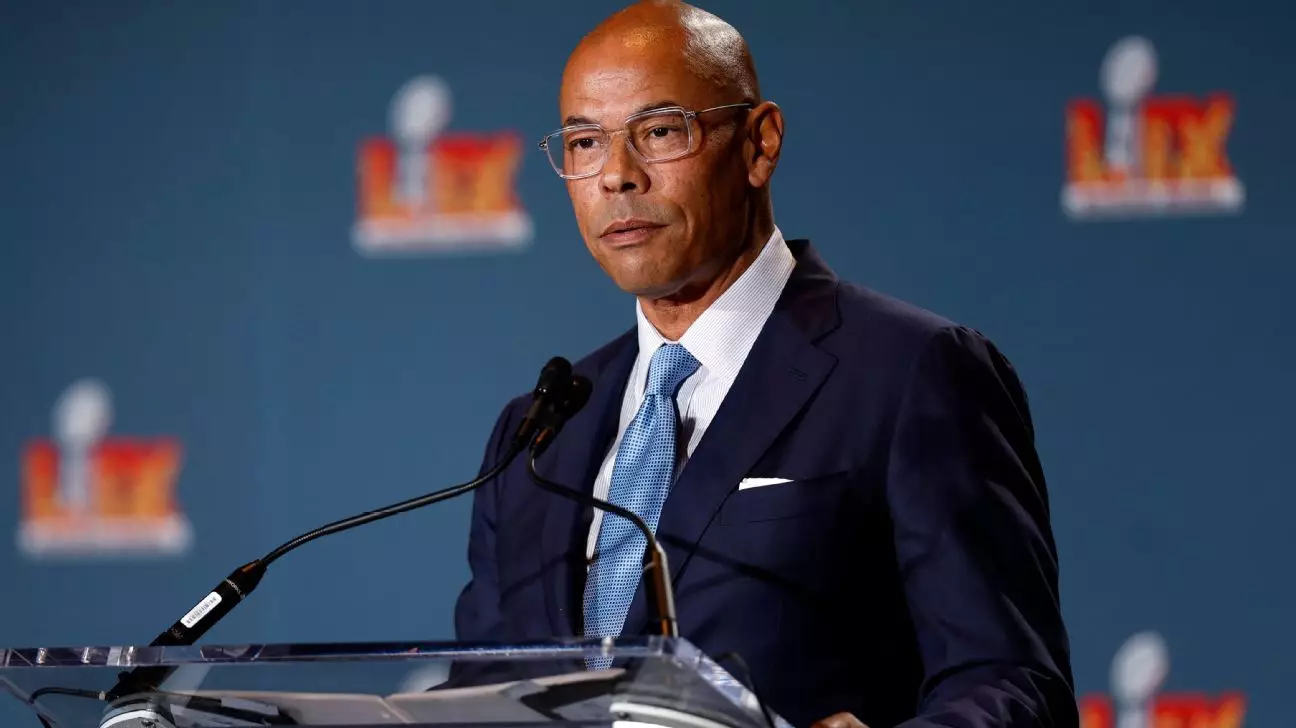In recent weeks, the NFL community has been shaken by revelations that expose troubling lapses in transparency and accountability among its leadership. The resignation of Lloyd Howell Jr., the former executive director of the NFL Players Association (NFLPA), serves as a stark reminder of how conflicts of interest and undisclosed affiliations can threaten the integrity of sports governance. Howell’s simultaneous involvement with The Carlyle Group, a globally influential private equity firm, raises serious questions about the integrity of decision-making processes and whether players’ interests are truly safeguarded.
What makes this situation particularly disconcerting is Howell’s employment at Carlyle’s aerospace and defense division—a field with obvious ethical and national security implications—during a period when he was tasked with representing NFL players. The timing suggests a conflict that goes beyond mere coincidence. Union representatives are supposed to act in the best interests of their members, yet Howell’s lucrative side gig casts doubt on his ability to do so without bias. The supposed advisory role’s potential to influence franchise investments or ownership stakes, combined with the NFL’s push for minority ownership in franchises, raises the alarm about undue corporate influence infiltrating the league’s core decision-making processes.
This situation underscores an unsettling reality: the veneer of professional sports leadership often conceals webs of corporate relationships that can compromise fairness and transparency. When the individuals leading players’ unions or league negotiations have ties to private equity, the playing field can subtly tilt in favor of corporate interests over athlete welfare and fans’ trust.
The Broader Impact of Corruption on the League’s Credibility
The NFL’s reputation—as America’s most-watched sport—relies heavily on public trust and the perception of fairness. However, the recent revelations paint a picture far from ideal. Behind the scenes, FBI investigations into financial dealings related to licensing and partnership schemes—such as OneTeam Partners—point to deeper systemic issues involving transparency, accountability, and ethical governance.
The fact that the NFL itself, along with associated unions and organizations, may have been involved in or at least connected to illicit financial activities, is profoundly troubling. It indicates that the league’s leadership is mired in a culture where profit motives often overshadow the core values of fair play and athlete advocacy. Such entanglements threaten to alienate fans, diminish the credibility of union leaders, and undermine the very fabric of the sport’s integrity.
More disturbingly, the allegations of Howell’s misconduct—ranging from a sexual discrimination lawsuit to undisclosed legal controversies—highlight a broader pattern of opaque behavior and unchecked power within the league’s upper echelons. When leaders fail to operate transparently and ignore potential conflicts, they erode trust from players, fans, and the public at large. This crisis of confidence demands urgent reforms aimed at opening the curtains on decision-making processes and establishing clear boundaries between private corporate interests and league governance.
The Need for a Center-Left Reform Movement in Sports Governance
As a center-leaning liberal observer, I believe that this controversy reflects an urgent need for structural reform within the NFL’s governance framework to prioritize accountability, ethical standards, and public interest. The current system seemingly allows for conflicts of interest to flourish unchecked—a situation incompatible with the social responsibility expected from a league that touts itself as a community cornerstone.
Introducing stricter conflict-of-interest policies, transparent disclosure protocols, and independent oversight bodies would be critical steps forward. The league and union leadership should be held to higher standards, with regular audits and public reporting of their financial dealings, especially when private investment firms are involved. Such reforms, rooted in integrity and social responsibility, are essential to reinstate the league’s credibility and ensure that players’ rights are genuinely protected over corporate greed.
The scandal surrounding Howell’s ties to Carlyle and the FBI investigations into financial misconduct serve as a wake-up call for fans and stakeholders alike: unchecked power and opaque decision-making jeopardize not only the NFL’s integrity but also its social license to operate. Sport should be a symbol of fairness, competition, and community—values that are fundamentally compromised when those at the helm prioritize profits over principles. It is imperative that the league adopts a more centrist, responsible approach that balances economic growth with ethical governance and public trust. Only then can the NFL truly serve as an institution that champions fairness, transparency, and social responsibility.

Leave a Reply